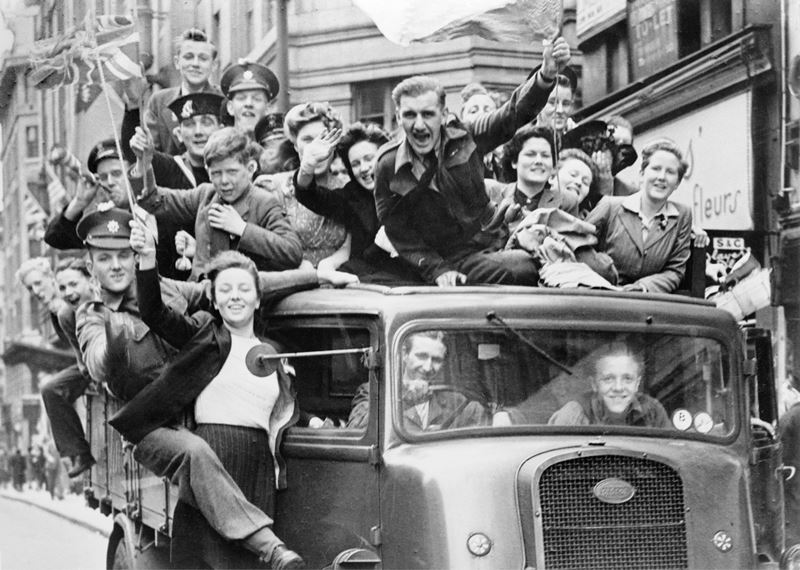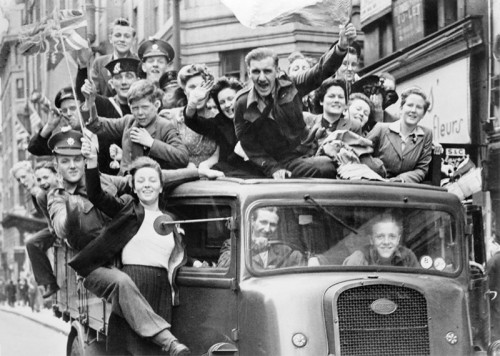5th May 2015
Remembrance


It is rather poignant that the 70th anniversary of Victory in Europe (VE) Day – 8 May 1945, the day that World War II in Europe officially ended – falls the day after the British General Election. It reminds us of the fundamental reason why Britain went to war in 1939, reluctantly but determinedly; to keep the world safe for democracy.
Neither the celebration then nor the commemoration today echo triumphalism. The dominant feelings in May 1945 were relief, euphoria and reflection. We had come out of the darkest of periods bowed, bloodied but unbroken. Much hard work lay ahead of us to rebuild a shattered Europe. Seventy years on, we remember the sacrifice of millions who played their part – including many brave men and women of faith – and celebrate the subsequent peace and reconciliation between foes.
Churches and prayer will play a central role in the three days of events commemorating VE Day. A service of remembrance will be held at The Cenotaph on Friday 8 May. On Saturday 9 May, around 11am UK time, churches and cathedrals will ring their bells as they did in 1945 to celebrate the end of the war – you may like to hear the BBC 1945 archive audio at gov.uk/veday70, in which cathedral bells and drums beat out the Morse code for “V” for Victory. And on Sunday 10 May, Westminster Abbey will host a service of thanksgiving, attended by veterans and their families, members of the Royal Family, representatives of allied nations and Commonwealth countries who fought alongside Britain, as well as diplomatic representatives of other countries.
We take many things for granted, including democracy. The right of the individual to elect his or her government is hard won. Later this year we commemorate 800 years since Magna Carta, traditionally seen as one of first steps leading towards modern representative democracy. The 70th anniversary of VE Day reminds us that an understanding of our common history is part of the vital glue that binds us as peoples and as nations.
NOT FOR PUBLICATION:
Ambassador,
a) Thank you for this post. My father would have loved it.
b) I read today in another media outlet about a conference on women in the Church sponsored by four embassies on 28 April (one of them was yours). The article didn’t include any details however. Would you consider including the main points of the conference and conclusions in one of your next blogs. I‘d love to read about it.
Thank you.